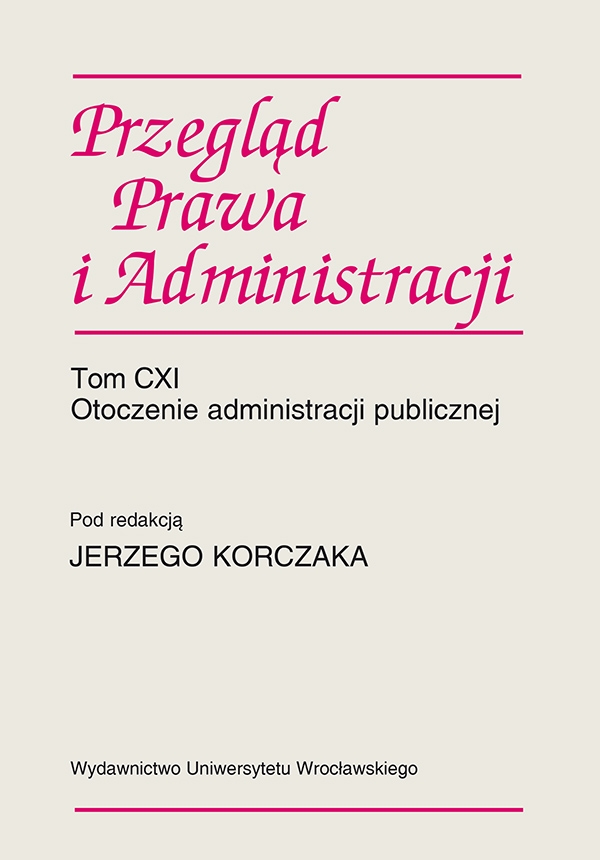

Archival articles

SELECTED SEGMENTS OF PUBLIC ADMINISTRATION ENVIRONMENT IN THE EDUCATIONAL SPHERE AND THEIR IMPACT ON MEETING EDUCATIONAL OBJECTIVES BY LOCAL GOVERNMENT
This paper is to outline selected segments of the environment of public administration in the light of the ongoing changes in the educational sphere and their impact on the local government education within dynamic transformations and complexity of educational objectives. Education is aconstitutional right and social duty of citizens, public objective and aprerequisite for social, state, cultural and economic development. Since the nineties of the 20th century the Polish school and schooling system has been striving to accommodate to educational transformations and changes in unstable environment.
The transformation process in the contemporary school and educational system is visible on the background of global changes, i.e. global access of students to knowledge, global access of graduates to labour markets, global context of school management, global trends in educational markets, commercial value of knowledge, or competition in educational services. School as an institution has been undergoing constant evolutionary change. An example of this is the educational reform that has became apriority among transformations of various spheres of social, economic, cultural life, and local and global challenges, such as the Poland’s accession to the European Union in 2004. School transformations in the age of globalisation are essential, as they are triggered by scientific and technological progress and changeable educational challenges and social expectations. Unstable environment affects changing educational objectives, tasks, goals of educational policy, forms and methods of activities, organisational structures of schools, scope of law regulations, school personnel, and education participants. Changes in the Polish education and schooling system are the result of the pace of political transformation, globalisation processes and the European integration processes.